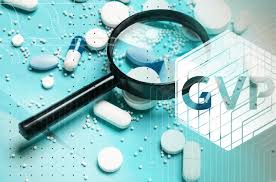Good Pharmacovigilance Practices as discussed in our previous articles forms the fundamentals that ensures drug use is safe. The implementation of good pharmacovigilance practices also confers other benefits to the healthcare industry.
They include:
- Guaranteed patient safety
- Conducting ethically acceptable clinical trials
- Enhanced compliance with NRAs
- A global effort in drug safety awareness
- Protecting the general health and wellbeing of the public
In this aritcle, we are going to have an in-depth look into these benefits.
1. GUARANTEED PATIENT SAFETY
This is the main objective of conducting pharmacovigilance. Patient Safety is closely linked to quality and efficacy. It is good to note however, that safety is not absolute. Therefore, it is through pharmacovigilance practices such as establishing a criteria for limits that effective patient safety can be guaranteed.
2. CONDUCTING ETHICALLY ACCEPTABLE CLINICAL TRIALS
Clinical trials are a complex endeavour given the many stakeholders involved. They include ethical committees, drug regulators, the investigators, study volunteers and patients. In relation therefore, problems such as conflicting interests by parties, unethical practices, little to no reporting and acting on adverse drug reactions as soon as they occur tend to be experienced.
However, through pharmacovigilance practices such as implementation of standardised reporting system; monitoring, exchange of information, and universal data collection become plausible and very resourceful to the aforementioned stakeholders.
As a result, safety and ethical practice on study subjects is guaranteed.
3. ENHANCED COMPLIANCE WITH NRA’S
For a company to operate successfully, it is paramount that they follow laid down regulations for them to qualify as being compliant. Among these regulations are the Pharmacovigilance Practices of different countries. By complying to P.V guidelines of a country, a company is able to gain the public’s confidence in their products because patients are guaranteed of the safety and efficacy of their medication. Moreover, they are reassured of continued monitoring of the drugs.
4. A GLOBAL EFFORT IN DRUG SAFETY AWARENESS
Pharmacovigilance practices, through regulatory bodies and pharma companies, has facilitated the availability of information on adverse drug effects from all parts of the world as they occur. For instance, the syrup reported in Gambia to contain the toxin, ethylene glycol. The collaborative reporting associated with the case necessitated for healthcare professionals in the rest of Africa to be more vigilant with paediatric syrups.
5. PROTECTING THE GENERAL HEALTH AND WELLBEING OF THE PUBLIC
Pharmacovigilance systems enable the recording and storage of data from which statistical analysis can be made. It is from this, that trends and patterns associated with adverse drug effects amongst certain demographics can be postulated.
This helps in taking relevant and timely action to sensitise members of the public of potential threats to their health associated with drug use. A case in point would be the reported cardiovascular effects amongst the elderly with the Covid-19 vaccines.
Good pharmacovigilance practices are essential in guaranteeing safety within the healthcare ecosystem. All stakeholders have a responsibility in ensuring that good pharmacovigilance practices are fulfilled unequivocally. Pharmaceutical companies specifically, by virtue of being the product owners, have a great responsibility in investing in good pharmacovigilance systems. This will go a long way in seeing to it that the healthcare ethics of beneficence and nonmaleficence are fully upheld.


